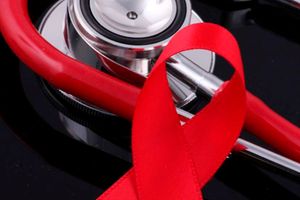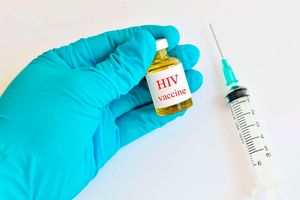Is yours an HIV discordant relationship? Let’s chat

Both partners need to be honest and open about their feelings and concerns.
What you need to know:
- A discordant couple can have a healthy and fulfilling relationship by using safe sex practices, getting tested for STIs regularly, and taking HIV medication as prescribed.
- If the couple decides to conceive, there are options available that the doctor can guide them through safely.
Being a challenging relationship, it is vital to have support groups and adhere to medical care routines for the mental wellness of the couple.
An HIV discordant couple is one where one partner has HIV and the other doesn’t. The relationship can be challenging, but it is possible to maintain a healthy partnership by paying attention to the needs of those involved.
One of the challenges is navigating the uncertainty of living and managing your health, relationships, and family.
The discordant couple may face stigma, health, and disclosure issues. These factors often contribute to feelings of isolation, anxiety, and depression.
It is crucial to openly communicate, support each other through tough times and make time for fun and relaxation. Taking care of your physical and emotional health is also key.
Some things to keep in mind
- Both partners need to be honest and open about their feelings and concerns.
- The infected partner needs to take medication and closely follow their doctor's instructions.
- The uninfected partner should get tested for HIV and other sexually transmitted infections regularly.
- Open dialogue about safe sex practices.
- Regular check-ups with a doctor to monitor the health of both partners.
Practicing safe sex
Use of condoms
To avoid contracting HIV, the couple should use condoms during sex. Condoms can also protect against other sexually transmitted infections. Remember condoms only protect the area they cover, so oral sex and other forms of sex without a condom can still transmit HIV.
Screenings for STIs
Regularly get tested for sexually transmitted diseases if your partner is infected with one or more STIs, even if you practice safe sex. Some STIs, like HPV, can be transmitted through skin-to-skin contact even if a condom is used.
Antiretroviral treatment for HIV positive partner
ART lowers the viral load of a patient. This means the amount of virus in the blood and other bodily fluids is lowered.
Taking ART as prescribed reduces the risks of virus transmission by ensuring the viral load is undetectable. However, it is not safe to assume that you cannot transmit the infection after treatment. Let the doctor evaluate to confirm that you have achieved an undetectable viral load.
When an HIV-Positive partner has been assured of lower risks of transmission, the discordant couple can have unprotected sex. However, routine check-ups (for the HIV-Positive) and testing (for the HIV-negative) should be considered.
Use of PrEP as a preventive option
Pre-exposure prophylaxis is a once-daily oral drug that stops the virus from infecting cells in the immune system of an HIV-negative person.
If someone without HIV has sex with an individual whose status is positive (e.g., those living as couples), taking PrEP could decrease their chances of becoming infected.
Using PrEP when your partner has an undetectable viral load is an added advantage towards lowering the risk of infection.
This preventive method can also be used by people who have sex with a partner whose status is unknown.
Using post-exposure prophylaxis (PeP)
This is a method used to prevent HIV infection after possible exposure to the virus. PEP consists of taking anti-HIV drugs starting within 72 hours post-exposure.
A discordant couple can consider using this option if a condom breaks or was not used.
It is advisable to avoid sharing piercing and injecting objects. In case of a cut and blood exchange, the HIV-negative partner can use PrEP.
This type of preventive method should be used after being prescribed by the doctor.
Conceiving as a discordant couple
It is possible to conceive, carry a pregnancy to term, deliver, and breastfeed without transmitting the virus.
Most of these steps can be done safely by consulting the doctor. In addition, the couple will be informed about numerous ways to conceive safely, including sperm wash, vaginal insemination, and viral suppression.
There are care clinics for a discordant couple that provides guidance and counselling regarding the options available.




